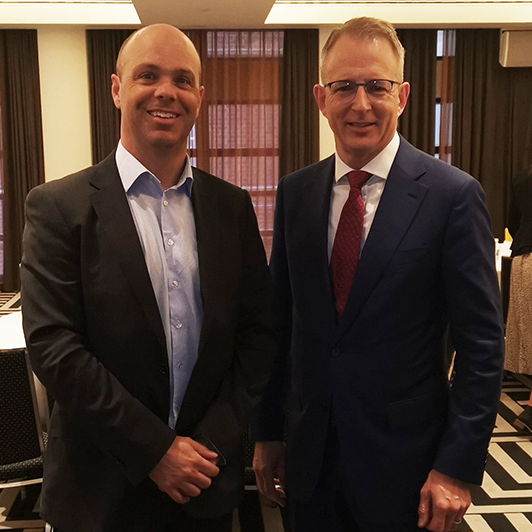The announcement that Australia and the US have entered formal bilateral negotiations on a new data sharing agreement has re-energised the debate around government seeking to access private data on digital systems for law enforcement.
Announcements such as these has many in the Australian ICT sector believe that the Coalition Government is not supportive and fails to understand its value to the Australian economy. This unfortunate view was largely formed following the rushed drafting and passage of the Telecommunications and Other Legislation Amendment (Assistance and Access) Bill 2018 (TOLA Act). which, without any judicial oversight, empowered Australian law enforcement agencies to request those technology companies who build and operate encrypted services to create a “back door” to access private communications.
The Australian ICT sector contributes $122 billion to our economy and contributes 6.6% to our GDP – ranked 6th in industry size, but continues to grow exponentially each year. The sector employs 723,334 Australians and another 100,000 workers will be needed in the next four years to meet current demand, many of these in the allied health sector. Digital technologies are essential in every part of our economy from agriculture, banking, retail, education, mining, social services and health care; these technologies now form the “digital spine” of the Australian economy.
It is important to emphasise that the AIIA supports government efforts in combating major crimes and terrorism, but industry consultation around new online enforcement laws has been lacking – and nobody likes surprises. Without proper consultation with industry, we will continue to see a lack of effective collaboration between the private and public sectors, which will continue to have an adverse effect on our growing domestic ICT sector.
Thankfully, we are finally being heard and changes are coming.
We are starting to see positive signs from the Department of Home Affairs being less opaque and more consultative approach to industry engagement. The Minister for Industry, Science and Technology, Karen Andrews has given her personal assurances that she will address the concerns raised by the ICT sector and be its key representative in Cabinet – this should not be underestimated in terms of its importance, especially given the fragmented nature of tech policy across government agencies. Communications and Cyber Safety Minister Paul Fletcher is also an important conduit for the sector who sits at the Cabinet table.

The Treasurer Josh Frydenberg recently gave a speech on the impact of digital transformation on our economy, the Minister for Government Services and the NDIS, Stuart Robert has a deep interest in how technology can improve citizen service delivery and the Minister for Communications and Cyber Security Paul Fletcher has well-known deep policy background in his portfolio area. Importantly, Prime Minister Scott Morrison also understands the economic opportunities presented by technology, and has talked previously around promoting Fintech and Agtech opportunities.
Therefore, for the first time, the ICT sector has key senior ministers in a government who have an understanding and appreciation of the importance of the sector, and a deep policy interest on this area. This presents a unique opportunity for our industry to work with, not against, the Morrison Government.
Despite the poor processes surrounding passage of the TOLA Act, I am confident we can re-set the relationship and work together to expand the economy, support our tech exports and ensure that the benefits of the ICT sector are well understood and not feared. We must recognise the need to move past the politically charged “innovation” agenda towards accepting the “digital spine” of our economy to ensure we derive the most advantage.
The future success of the Australian economy demands government and industry work together in order to get this right.
Contact: Simon Bush
Phone: 1300 665 145





